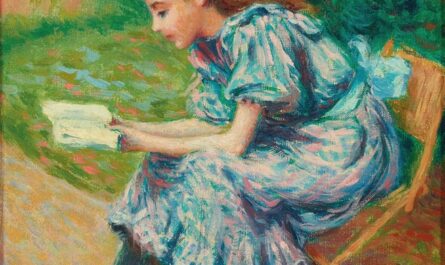It might be the greatest love story of all time. Not Romeo and Juliet; not Samson and Delilah, nor Victoria and Albert.
Creators and their coffee.
Just look at the precision Beethoven used with his morning cup. “Beethoven’s breakfast was coffee, which he made himself with great care—he determined that there should be 60 beans per cup, and he often counted them out one by one for a precise dose.”
Søren Kierkegaard had a unique coffee ritual, too. According to biographer Joakim Garff, Kierkegaard “delightedly seized hold of the bag containing the sugar and poured sugar into the coffee cup until it was piled up above the rim. Next came the incredibly strong, black coffee, which slowly dissolved the white pyramid.” Then he drank the whole thing in one go. Unique, isn’t it?
Coffee represents a transition; from asleep to alert, from waking to prepared; from vaguely fumbling to focused and active thoughts. The constant presence of coffee in my life reminds me that transition is a constant process for humans as well as coffee. Aren’t we always in the process of change and adaptation, despite the very human distaste for transition? We want to arrive, want to be or have the thing, do the profession, have written the piece. However, most of our lives are spent in the process of working on these things.
This reminder is one reason I love coffee; perhaps the same is true of others. The brewing process taking place every morning prompts us to remember we too are perpetually in process. As with our delicious broth, the results of the process, while supremely satisfying, are the shortest duration of the whole affair. It then follows that we should enjoy the process and ritual. I, in concert with many worldwide, look forward to the ritual of a morning cup of coffee or three. For me, it’s not so much about the caffeine as it is about what a mug full of freshly brewed coffee holds – a few minutes of quiet contemplation and indulgence before the day begins. In the space of that first mug of coffee, I wake up, do my morning journals, read the Bible, read poetry or a selection from a book of wisdom, outline my top three goals for the day, and begin to shift into a writing mindset. Coffee represents transition; from groggy to great.
Now, I’ve enjoyed coffee ever since I had my first latte in high school, but in college java became the drink for all occasions. You’ve woken up and have a class to get to – brew some coffee. You have a study session to get to – grab some coffee. You’re catching up with a friend this afternoon before an evening movie – meet for coffee. You’ve just finished watching the movie – grab a coffee for the post-viewing discussion. Yes, I mainly consisted of caffeine during those university years. While my diet, and sleep habits – have certainly improved since, my love for coffee has only deepened.
I blame the city of San Antonio for making me the coffee snob I admittedly am today. Living there gave me access to endless options of fresh choices, and spoiled me for anything less. This sabbatical week, I’m brewing fresh beans purchased from Merit Coffee Roasters during a recent visit to San Antonio. I lived in the city a few years ago, and Merit (then called Local) was a regular haunt for myself and my fellow coffee enthusiast friend. Gone are the listless supermarket grounds. Unnecessary are the ‘fixings’ of cream and sugar. Today I insist on locally sourced, freshly roasted whole beans, which I then grind in small batches directly before the morning’s brew, taken steaming and black. When coffee is fresh it doesn’t need to be “fixed.” It wasn’t until I began brewing coffee within two weeks of its roast date I realized those flavor notes everyone claims to taste really do come through. Those “caramel flavors with notes of cherry” descriptions aren’t simply pretentious nonsense, but actual flavor notes, when the coffee is fresh. I was astounded. I could actually taste the dark chocolate mingling with cherry, as the packaging promised. These weren’t added flavors – these were the characteristics of the beans themselves, illuminated by careful roasting, then brewing, using one of our three brewing methods.
Yes, you read that correctly. We keep three brewing systems in our house. Over the years, I’ve moved away from the automatic drip maker, adorning millions of American counter tops, and gravitated toward the French press. In fact, when my automatic maker died after years of faithful service, I switched over to the press exclusively. After getting married though, to a man who enjoys coffee by the gallon, we have an automatic maker for early morning, instant caffeine, and I save the good beans for a later, more luxurious brewing and sipping experience. Today I am drinking from a bag of beans roasted for Hotel Emma, brewed via pour over method. While many dismiss pour overs as needless posturing, a delay of their vital morning caffeine fix, I enjoy the simple process and ritual of the pour over. Measuring grounds to water and carefully pouring at just the right rate of speed; it’s a delicate process well worth the few minutes required.
Yes, you read that correctly. We keep three brewing systems in our house. Over the years, I’ve moved away from the automatic drip maker, adorning millions of American counter tops, and gravitated toward the French press. In fact, when my automatic maker died after years of faithful service, I switched over to the press exclusively. After getting married though, to a man who enjoys coffee by the gallon, we have an automatic maker for early morning, instant caffeine, and I save the good beans for a later, more luxurious brewing and sipping experience. Today I am drinking from a bag of beans roasted for Hotel Emma, brewed via pour over method. While many dismiss pour overs as needless posturing, a delay of their vital morning caffeine fix, I enjoy the simple process and ritual of the pour over. Measuring grounds to water and carefully pouring at just the right rate of speed; it’s a delicate process well worth the few minutes required.
If we can find a way to enjoy the process, not just the results, we fall in love with the verb, not just the noun. We enjoy writing, not being a writer; enjoy working, not just the title. We enjoy brewing coffee, not just drinking it. When we bring passion to how we go through the process, we bring respect and dignity to the outcome.
Selection, measurement, brewing, and enjoyment; the ritual of coffee corresponds to how we do most things in life. We choose a path, count the cost, get started, and reap the rewards.




